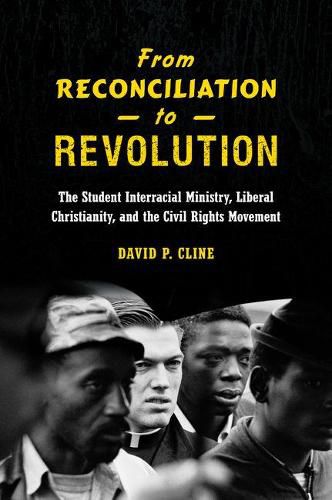Readings Newsletter
Become a Readings Member to make your shopping experience even easier.
Sign in or sign up for free!
You’re not far away from qualifying for FREE standard shipping within Australia
You’ve qualified for FREE standard shipping within Australia
The cart is loading…






Conceived at the same conference that produced the Student NonviolentCoordinating Committee (SNCC), the Student Interracial Ministry (SIM)was a national organisation devoted to dismantling Jim Crow while simultaneouslyadvancing American churches’ approach to race. In this book, DavidP. Cline details how, between the founding of SIM in 1960 and its dissolutionat the end of the decade, the seminary students who created and ranthe organisation influenced hundreds of thousands of community membersthrough its various racial reconciliation and economic justice projects. Frominner-city ministry in Oakland to voter registration drives in southwesternGeorgia, participants modeled peaceful inter racialism nationwide. By tellingthe history of SIM-its theology, influences, and failures-Cline situates SIMwithin two larger frameworks: the long civil rights movement and the evenlonger tradition of liberal Christianity’s activism for social reform.
Pulling SIM from the shadow of its more famous twin, SNCC, Clinesheds light on an understudied facet of the movement’s history. In doing so,he provokes an appreciation of the struggle of churches to remain relevantin swiftly changing times and shows how seminarians responded to institutionalconservatism by challenging the establishment to turn toward politicalactivism.
$9.00 standard shipping within Australia
FREE standard shipping within Australia for orders over $100.00
Express & International shipping calculated at checkout
Conceived at the same conference that produced the Student NonviolentCoordinating Committee (SNCC), the Student Interracial Ministry (SIM)was a national organisation devoted to dismantling Jim Crow while simultaneouslyadvancing American churches’ approach to race. In this book, DavidP. Cline details how, between the founding of SIM in 1960 and its dissolutionat the end of the decade, the seminary students who created and ranthe organisation influenced hundreds of thousands of community membersthrough its various racial reconciliation and economic justice projects. Frominner-city ministry in Oakland to voter registration drives in southwesternGeorgia, participants modeled peaceful inter racialism nationwide. By tellingthe history of SIM-its theology, influences, and failures-Cline situates SIMwithin two larger frameworks: the long civil rights movement and the evenlonger tradition of liberal Christianity’s activism for social reform.
Pulling SIM from the shadow of its more famous twin, SNCC, Clinesheds light on an understudied facet of the movement’s history. In doing so,he provokes an appreciation of the struggle of churches to remain relevantin swiftly changing times and shows how seminarians responded to institutionalconservatism by challenging the establishment to turn toward politicalactivism.